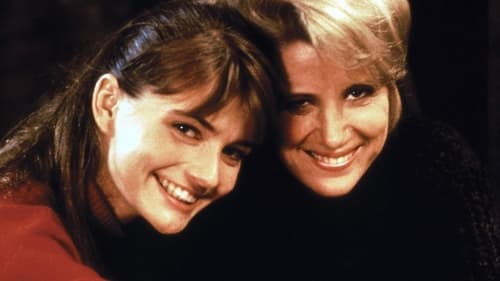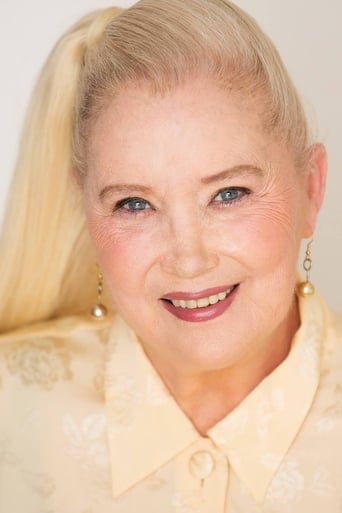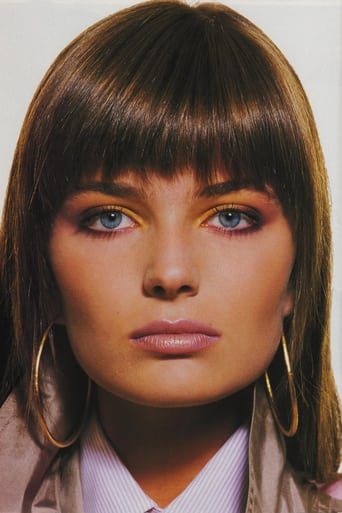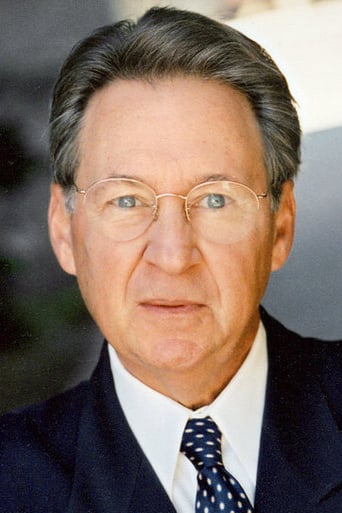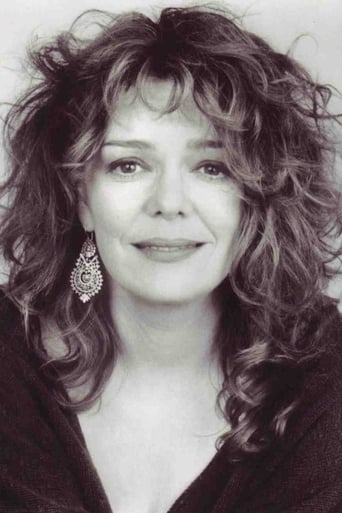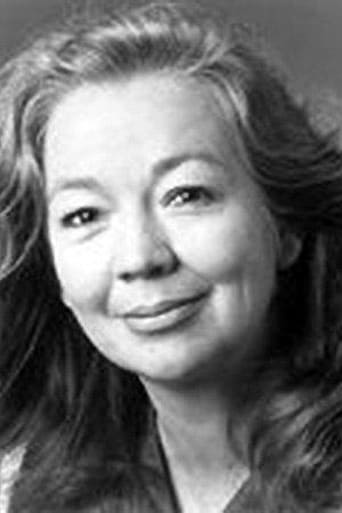Andy (film-critic)
A drama at its very core, "Anna" displays that genuine truth that all actors age, and sometimes, fade away. Anna is a character that believes America is her safety net, her home, and it can do her no wrong – but she refuses to belittle herself to do work she doesn't believe in. She is hard-nosed, optimistic, stubborn, and arrogant when it comes to her life, yet not afraid to let others in, yet drop them at a moments notice. Anna flip-flops between personalities, which makes this film ideal of an aging star, but not idea of the viewing audience. "Anna" has been praised for its star Sally Kirkland, and her ability to get "grungy" for the role, but a month into 2008, "Anna" does not remain a staple of film culture. It is dated, dull, and formulaically chaotic.Director Yurek Bogayevicz has a message hidden within "Anna" about the falsehoods of Czechoslovakia, both politically and socially, but Kirkland refuses to let them upstage her. Bogayevicz is not afraid to play with the camera, to use wooden frames to allow Kirkland to stand out, and he is not afraid to lessen the surrounding characters so that when you walk away from the film, it is Kirkland you remember. If it isn't obvious, this film didn't sit well with me. From the opening of the first act and deep within the second, "Anna" felt like a high school theater production. The characters were non-existent, there was no enlightening pre-story, and there was no definition of time or place. There was Sally Kirkland, stubbornly saying that she is better than the other actresses vying for the same lifestyle that she wants. Randomly she encounters a friend, a young girl that has also traveled a long distance to get to America for the glitz and glamour, and two of them (within the span of 20 minutes) build a friendship that could break all walls. It is emotionally boring and unbelievable. Again, randomly, we meet Anna's boyfriend Daniel (played by the weak Robert Fields), who brings nothing to the table in terms of definition or character – only to boost the attention onto Kirkland's Anna. Through the course of nearly two hours, we watch as more random acts coupled with unnamed characters intertwine together to feebly create a story that is held together by loose threads – and SALLY KIRKLAND. Arg, it pains me to continue to say this but "Anna" could have been a fantastic film had Bogayevicz presented equal time between Anna, Daniel, and Krystina, but instead we are forced into a one-sided game where emotional scenes speak louder than plot.Is this where Charlize Theron found inspiration for her beauty-less role in "Monster", or Halle Berry in "Monster's Ball"? Was Sally Kirkland one of the early actresses discover that by letting themselves go for a character Oscar will shine in their direction? Throughout this film I was disgusted by Kirkland's portrayal of Anna, and Bogayevicz's lack of excitement for anything else fluent. Bogayevicz gives us an Anna that doesn't work hard for her parts, doesn't care for others, and is generally mean spirited – yet we are to feel sympathy for her? Near the beginning of the film, she forces what she wants to do onto others, and gets upset when she doesn't get her way. Sure, aging actresses my have that appeal to them, but Kirkland creates a more childish character instead of a mature one. That is where "Anna" could have improved. If this was a mature Kirkland, I would have gobbled it up, but this stammering childish Anna was impossible to believe. While my favorite scene was near the end where Anna goes to watch one of her older films playing (included is absurd make-out characters) and the film burns, this scene is also one of my least favorite. Anna has made a phenomenal life for herself, creating films and building the dream, yet when anyone else wants to enter that spotlight, she gets jealous and outraged. This didn't make for a character I wanted to stand behind nor win Oscars. Coupled with the classic 80s background synthesizer, the outrageous over-the top wardrobe, and the displaced ending (where did that come from and what happened??) – "Anna" slipped far in the scope of amazing cinema. It was a show-piece, an opportunity for an aging star to yell at the world one more time. In this one it worked, but I don't think I will be fooled again.Overall, I cannot say that I was impressed with this film. "Anna" is not a film about an aging film star; it is about Sally Kirkland, and ONLY Sally Kirkland. Bogayevicz tries to do more with the story, but fails either because Kirkland will not allow him or he just realizes that there isn't enough to support a full story. There are one or two decent scenes in this film, but nothing that promotes this film as innovative or influential. Bogayevicz did not create a character that audiences would believe, tear up for, or dedicate a Sunday afternoon with – he created an annoyance. Kirkland wasn't Anna, she was an actress playing her a bit overdone and crusty on the sides. Perhaps I missed the scope of this film, but what makes films like this work is the cooperation of everyone involved. That wasn't the case here. In "Anna", Kirkland orders Daniel to act like a dog (apparently as a symbolic act) and yet during the entire emotional scene, I couldn't help but think that was what Kirkland was like to those on the set. She didn't make this into a film, she transformed it into her own production, and because of it "Anna" failed. I cannot suggest this to anyone – from one Czech to another – skip it! Grade: * ½ out of ***** (for that pesky theater scene that creeped me out)
Richard Tasgal (tasgal)
"Anna" is the movie with perhaps the greatest disparity between my opinion and everyone else's, so seems appropriate for my first comment on IMDb.Anna (Sally Kirkland) was a legendary actress in Czechoslovakia, and in New York suffers a career in shabby productions with avant garde or artistic pretensions. Krystyna (Paulina Porizkova), an immigrant from Czechoslovakia with acting aspirations, spends her first days on the streets of New York searching for Anna, fainting from hunger virtually on her doorstep. Anna takes her in, and they become intimate friends.Porizkova's Krystyna is as compellingly ambitious and wily as any of Werner Herzog's roles -- and this in an area calling for a subtler social sense. Krystyna seems not to be Anna's daughter, given up for adoption at a young age. But the malleability of memory -- Krystyna's in an obvious way, though perhaps also Anna's -- is treated more interestingly than in some of Agnieszka Holland's better known movies, such as "Olivier, Olivier" or "Europa, Europa." Almost as interesting as some real life cases: The erstwhile mental illness "fugue" comes to mind (see, for example, the Times Literary Supplement, 16 July 1999; as this is a movie database, I'll also point to "Paris, Texas" for a portrayal of the phenomenon). So does the case of Benjamin Wilkomirski. I could but won't extend this list.On the negative side, the description of Jewish life in New York is a mixture of inappropriately projected Christian norms and condescension (maybe due to unfamiliarity, or laziness of imagination).

